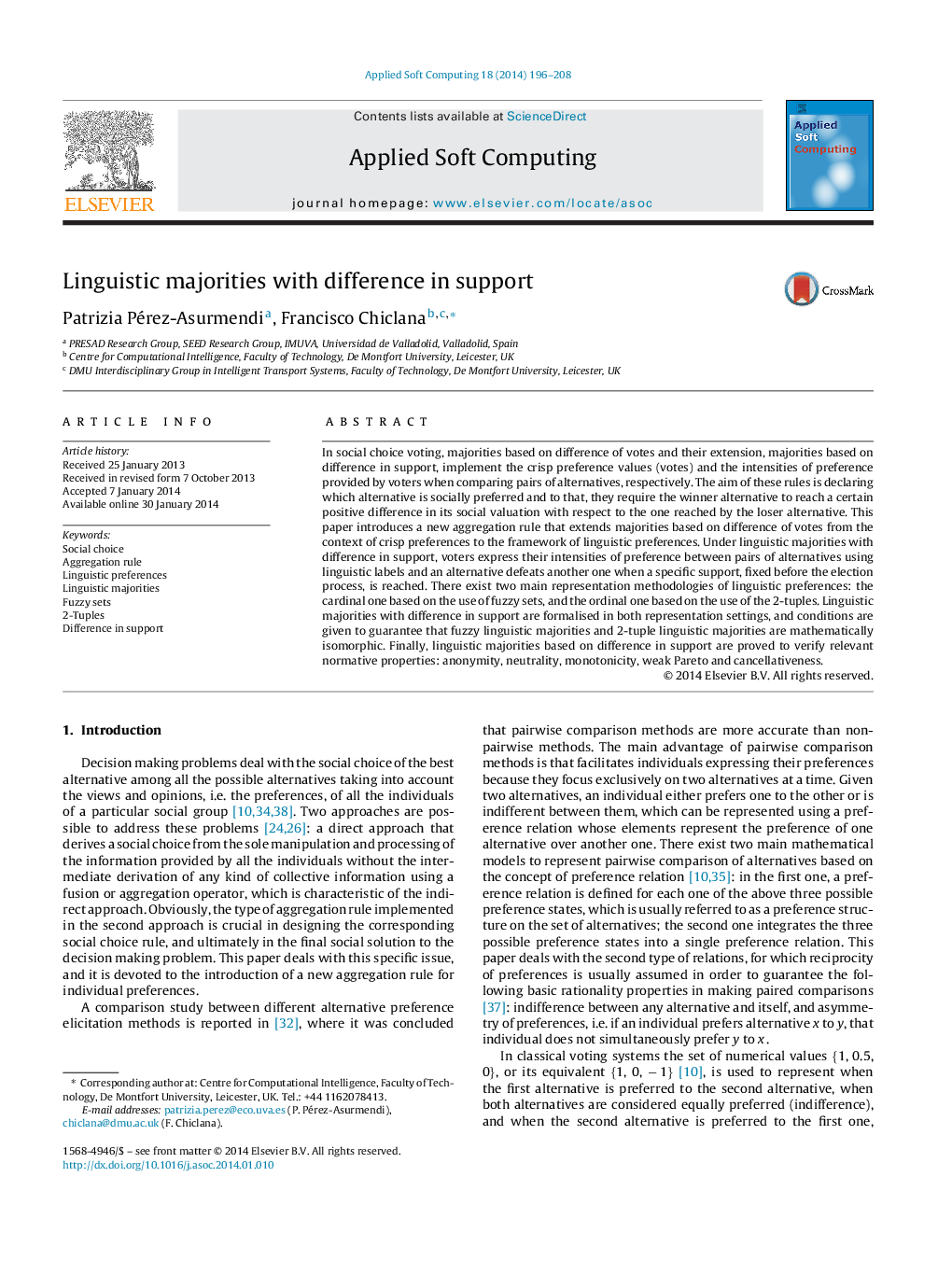| کد مقاله | کد نشریه | سال انتشار | مقاله انگلیسی | نسخه تمام متن |
|---|---|---|---|---|
| 495533 | 862829 | 2014 | 13 صفحه PDF | دانلود رایگان |
• A new linguistic aggregation rule that extends numerical majorities based on difference in support is introduced.
• Linguistic majorities with difference in support are formalised for fuzzy set and 2-tuples.
• Both representations are proved to be mathematically isomorphic.
• A set of normative properties have been demonstrated to hold for the new linguistic majorities.
In social choice voting, majorities based on difference of votes and their extension, majorities based on difference in support, implement the crisp preference values (votes) and the intensities of preference provided by voters when comparing pairs of alternatives, respectively. The aim of these rules is declaring which alternative is socially preferred and to that, they require the winner alternative to reach a certain positive difference in its social valuation with respect to the one reached by the loser alternative. This paper introduces a new aggregation rule that extends majorities based on difference of votes from the context of crisp preferences to the framework of linguistic preferences. Under linguistic majorities with difference in support, voters express their intensities of preference between pairs of alternatives using linguistic labels and an alternative defeats another one when a specific support, fixed before the election process, is reached. There exist two main representation methodologies of linguistic preferences: the cardinal one based on the use of fuzzy sets, and the ordinal one based on the use of the 2-tuples. Linguistic majorities with difference in support are formalised in both representation settings, and conditions are given to guarantee that fuzzy linguistic majorities and 2-tuple linguistic majorities are mathematically isomorphic. Finally, linguistic majorities based on difference in support are proved to verify relevant normative properties: anonymity, neutrality, monotonicity, weak Pareto and cancellativeness.
Figure optionsDownload as PowerPoint slide
Journal: Applied Soft Computing - Volume 18, May 2014, Pages 196–208
